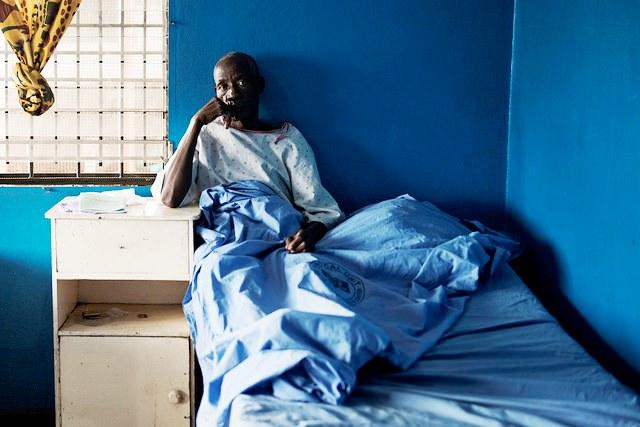
Today in Open Forum Infectious Diseases, researchers from the Democratic Republic of the Congo (DRC) report that 86.7% of survivors of the country's 2020 Ebola outbreak who received advanced therapies experienced long-term health effects.
For 1 year, the researchers followed up on 750 adults and children infected from April to October 2020. The median patient age was 32 years. The outbreak, the DRC's tenth, was the first in which Ebola patients received drugs such as the monoclonal antibodies REGN-EB3, ansuvimab, and ZMapp and the antiviral medication remdesivir.
Untreated Ebola kills 50% to 90% of those infected. Among survivors, short- and long-term symptoms such as fatigue, bone pain, headaches, abdominal pain, and impaired vision or other eye disorders.
"Although new therapeutic agents improved survival, questions remain about their long-term impact," the investigators wrote. "Research has reported late-onset ocular complications, such as uveitis and neurologic symptoms, even in survivors treated with monoclonal antibodies." Another study showed that antibody levels waned quickly over time, particularly in ansuvimab recipients.
Neurologic, musculoskeletal symptoms
In total, 86.7% experienced post-Ebola conditions, including neurologic (61.7%), musculoskeletal (49.7%), and general (38.4%) symptoms for at least 38 months.
These results underscore the need for targeting long-term care to effectively manage post-Ebola sequelae.
At enrollment (median time to baseline visit, 330 days after hospital release), neurologic symptoms were more common in the REGN-EB3 group (hazard ratio [HR], 2.14) than in remdesivir recipients.
Musculoskeletal symptoms were linked to age (HR, 1.02), ZMapp treatment (HR, 3.17), and hemorrhagic symptoms during infection (HR, 1.64), while ocular sequelae were tied to age (HR, 1.04). Patients who were female, older, had underlying metabolic conditions, or received REGN-EB3 were more likely to have recurrent neurologic and musculoskeletal symptoms. Recurrent ocular symptoms were slightly more common in adults than in children (HR, 1.02).
"Despite improved survival with monoclonal antibody therapy, our findings highlight a high incidence of neurologic sequelae in the REGN-EB3 group, and musculoskeletal in ZMapp group compared to the Remdesivir group, also among older survivors, women and those with comorbidities," the authors wrote. "These results underscore the need for targeting long-term care to effectively manage post-Ebola sequelae."













